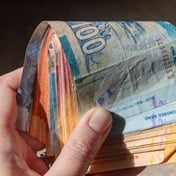Wim de Klerk was ready for a lifestyle change and heading to Hermanus in the Western Cape after eight years as Exxaro’s financial director, but then Mpho Makwana, chairperson of ArcelorMittal SA, came knocking on his door for help.
Now a lifestyle change in the opposite direction is awaiting De Klerk – he accepted Makwana’s offer to become CEO of the wavering ArcelorMittal. And he’s hoping to initiate the culture change there that he learnt about at Exxaro: it’s not just about the shareholders, but all role players, including government, who must benefit from a big company such as ArcelorMittal.
He has to stay on in his current position at Exxaro until the end of August because certain things must to be done before he can move on. But what possessed him to accept the appointment?
“I spent a lot of time trying to find out what must be done to turn ArcelorMittal around. In the process, I realised that South Africa will be in big trouble if we’re unsuccessful.
“If you look at ArcelorMittal – it’s one of the biggest clients of Exxaro, of Kumba, of Sasol, even of Eskom. Do you realise that if ArcelorMittal closes its doors, Eskom will have so much surplus electricity that it will have trouble paying back its loans? That’s truly how serious the situation is,” says De Klerk.
The Vanderbijlpark plant has about 5 000 permanent workers and another 3 000 contract workers, and if the plant closes, it would mean the end of hundreds of thousands of job opportunities in steel and related companies in the Vaal Triangle, and even on the East Rand, which is dependent on the products.
In addition, ArcelorMittal’s Saldanha plant is being reviewed so that a decision can be made on whether the plant, which is aimed at the export market, has any chance of survival whatsoever.
To prevent ArcelorMittal from going down the same path as Evraz Highveld Steel and Vanadium, which is now being broken up into parts and sold off, quick and actual action by government, the steel unions and ArcelorMittal itself has to be taken.
The biggest snag up to now has been relations with government. For instance, the state is furious at the steel industry, and especially ArcelorMittal, because large amounts of the steel that was needed for the stadiums for the 2010 Soccer World Cup had to be imported due to the company’s high steel price at the time.
De Klerk points out that, virtually overnight, 67 countries implemented protection of their steel industries when China started dumping its surplus steel on world markets last year – but South Africa did not.
“In South Africa, we don’t have that thing of protecting ourselves – but if we manage it, if we can make the company survive, then I feel we have a chance in this country,” he says.
The state has already implemented eight of the 10 steel tariffs that steel producers ArcelorMittal, Evraz, Scaw Metals and others have asked for. But the big one that will help ArcelorMittal, an antidumping duty on the import of hot-rolled coil, has not been approved yet.
Half of the Vanderbijlpark plant’s production is hot-rolled coil. Without tariff protection, the Vanderbijlpark plant will not be able to survive. Paul O’Flaherty, who stepped down as ArcelorMittal CEO in February, convinced government and other role players that tariff protections were a condition for the survival of the country’s steel industry.
Another condition is local steel purchases for the state’s infrastructure projects, which could add around 350 000 tons to ArcelorMittal’s sales figures.
Relations with government will therefore determine whether ArcelorMittal survives. De Klerk says he learnt a lot about this from his current boss, Sipho Nkosi, the outgoing head of Exxaro.
“People go to government and expect them to fix things, but government has many people to look after and many aspects it has to pay attention to. We have to sell them a story that is important to them so that you are on their preferred list because you can make a difference to South Africa.
“That is the bright side I’m seeing in this – to make a difference is for me absolutely the passion that it’s about,” says De Klerk.
When Brian Molefe was appointed Eskom CEO early last year, he said it was time that he stopped thinking about everything that had gone wrong at Eskom and that his energy would instead be spent on how to take Eskom forward.
“I read it somewhere in a newspaper. It made quite an impression on me and, to a great extent, it’s what we will have to do at ArcelorMittal. Yes, things went wrong, but we must now talk about how we will take the industry forward,” says De Klerk.
“Sipho was phenomenal with that.
“He taught us that it’s not only about our shareholders, but that all role players have to achieve something together. If I can bring that to this company, so that we can make a fresh start and find out what all the role players need, then we’ve achieved something.”




 Publications
Publications
 Partners
Partners








